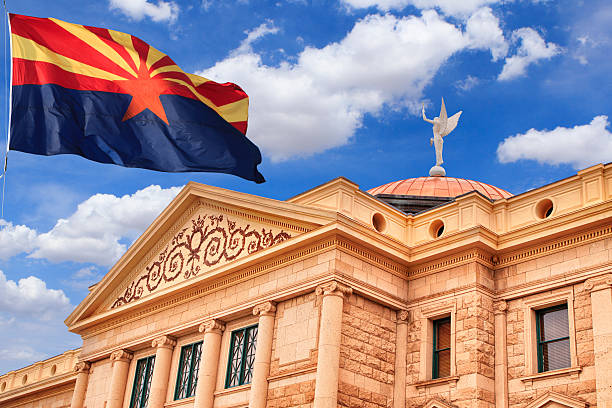A proposal by state Sen. J.D. Mesnard, R-Chandler, would give more voters a say in what propositions appear on statewide ballots.
The state Senate Government Committee on Wednesday passed SCR 1015, which would refer to voters the question of whether to require initiative proponents to obtain petition signatures from each legislative district in Arizona.
The resolution would require a minimum threshold of 10% of the overall required signatures to come from each legislative district in order for a proposition to qualify for the ballot. Turnout from the previous gubernatorial election determines the total number of valid signatures that must be collected.
Proponents say that this measure would ensure that propositions which make the ballot have support from every corner of the state, rather than just its most populous centers.
Under current law, there are no requirements for initiative backers to gather signatures from across the state, so petition circulators can concentrate their efforts in Phoenix and Tucson with no need to pitch their ideas to voters in more rural and exurban areas.
“Initiatives are difficult to repeal or fix if there are issues, even technical changes,” Jenna Bentley of the Goldwater Institute said in testimony on the proposal. “We feel that it is important that these ballot measures get vetted as well as they possibly can. This just says that if you’re going to put a measure on the ballot, you need to go to every legislative district to do it.”
Half of the states that have a citizen initiative process also have a petition signature geographic distribution requirement, including Arizona neighbors Colorado and Utah.
Progressives on the committee expressed skepticism at giving voters outside metropolitan areas an opportunity to play a role in determining what initiatives secure a spot on the statewide ballot.
“This is effectively going to allow a single (legislative district) to block the desires of the whole state,” Sen. Juan Mendez, D-Tempe, said.
The legislation passed the Government Committee on 5-3 party-line vote. Once approved by the full Senate, it will be sent for consideration to the House of Representatives. Ballot referrals are solely at the discretion of the Legislature and do not have to be approved by the governor.
In addition to the Goldwater Institute, supporters include the Arizona Farm Bureau, the Arizona Chamber of Commerce & Industry, the East Valley Chambers of Commerce Alliance, the Arizona chapter of NAIOP, and the United Dairymen of Arizona, among others.
Opponents include Planned Parenthood of Arizona, the Sierra Club Grand Canyon Chapter and Save Our Schools Arizona.
If referred to the 2024 ballot, the geographic distribution measure would mark the second consecutive election cycle where voters were faced with an initiative system reform proposal. Voters in 2022 passed Proposition 129, which limits ballot measures to a single subject, and Proposition 132, which requires a measure seeking to raise or institute a new tax to receive at least 60% of votes cast to pass.
















Add comment